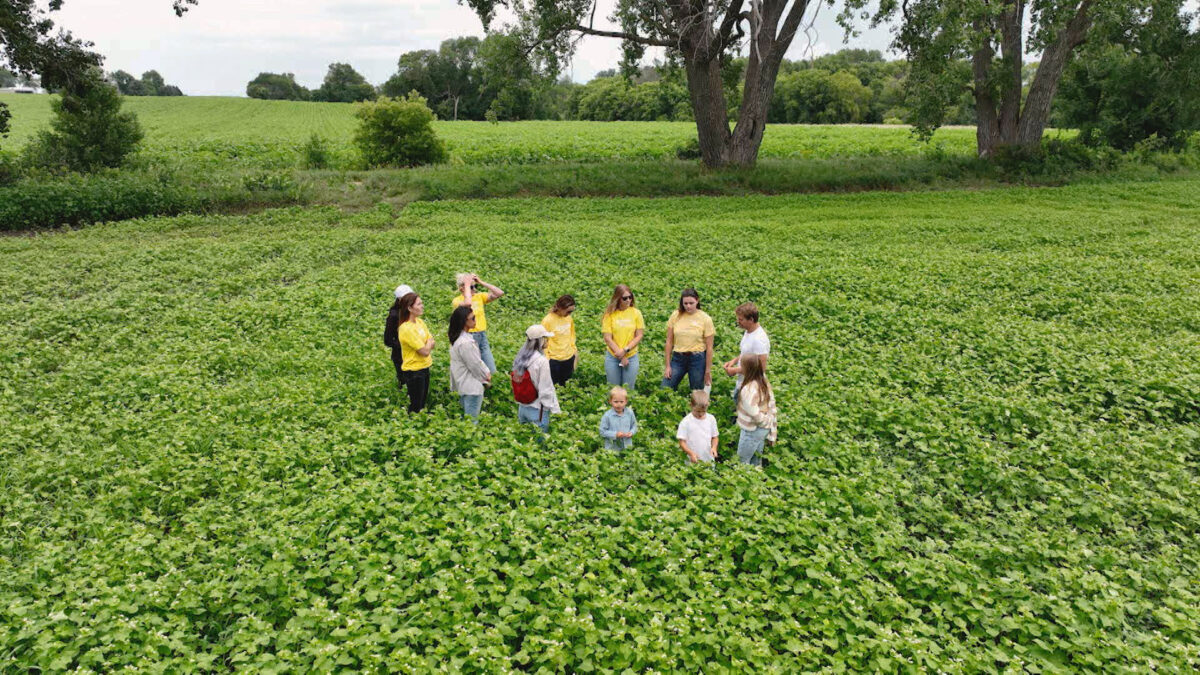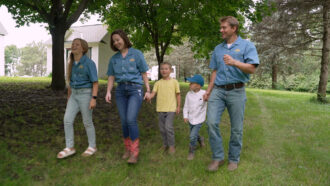At A-Frame Farm, resilience begins below the surface. In a new episode of America’s Heartland, produced in partnership with SARE, farmer Luke Peterson shares how his family is adapting to increasingly erratic weather through regenerative practices that focus on restoring the soil.
Located on 500 acres in Madison, Minn., A-Frame Farm produces organic grains and grass-fed beef using techniques that prioritize long-term soil health. “I’m growing food for humans that is healthy,” says Peterson. “It brings me a lot of joy.”

Peterson’s journey into sustainable farming was inspired by his wife’s work as a nurse practitioner, where he saw the direct connection between soil, food, and human health. That connection now guides every decision on the farm: minimizing tillage, rotating diverse crops, and using compost from their cows to revitalize the land.
The farm’s use of deep-rooted perennials like Kernza plays a critical role in soil health. Kernza roots help retain moisture during drought and stabilize the soil during heavy rains, while also drawing carbon dioxide from the atmosphere. “We work on Mother Nature’s terms,” Peterson explains.
By building a more diverse and regenerative system, the Peterson family is reducing their reliance on off-farm inputs and preparing their land for long-term success. Their efforts also extend beyond the farm, through partnerships with companies like Simple Mills, which source ingredients directly from A-Frame for their organic food products.
This video is part of an episode of RFD-TV's America's Heartland produced by PBS KVIE highlighting farmers and ranchers who are using sustainable strategies to adapt to challenging weather conditions. View the entire episode at Farming Strategies for Adapting to Extreme Weather.
